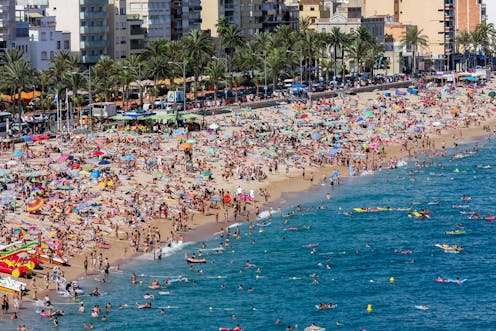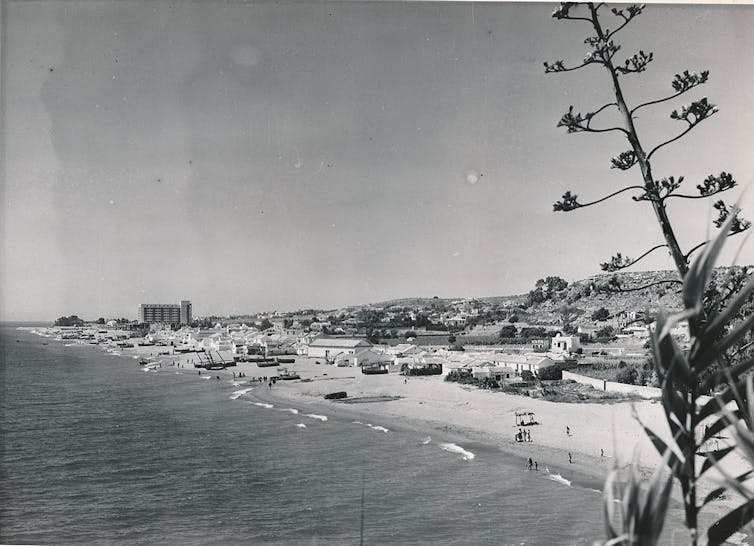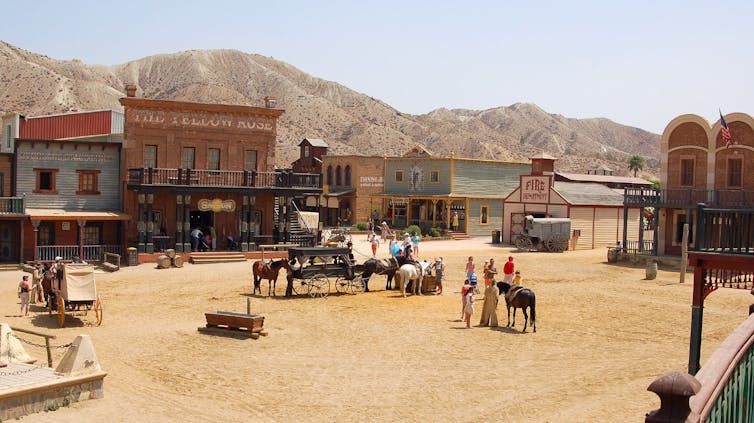
Iberian coasts and islands have long been popular destinations for partying holidaymakers. As Britons, in particular, prepare to descend on Spain over the summer months in search of sun, sea, and sangria, a flurry of recent headlines suggest that quite what that tourist experience looks like is set to change significantly.
Hotels in Malaga are reportedly being fitted with noise detectors to clamp down on unruly hen and stag parties visiting the seaside town. The authorities in San Sebastian, meanwhile, have said they will start charging tourists for sea rescues, if their behaviour is found to have been reckless. Elsewhere, urinating in the sea at Vigo, barbecuing on the beach at Salobreña, and unruly drunken behaviour in Palma will all see the ill-behaved tourists in question incur hefty fines and, potentially, an early ride home.
Spain is the second most-visited country in the world, after France. In 2019, it welcomed 83.5 million tourists – the majority of whom were from the UK – and the sector contributed €154,737.5m (£130,876) to Spain’s GDP. As of May 2022, four out of every ten new jobs in the country are connected to the industry.

This article is part of Quarter Life, a series about issues affecting those of us in our twenties and thirties. From the challenges of beginning a career and taking care of our mental health, to the excitement of starting a family, adopting a pet or just making friends as an adult. The articles in this series explore the questions and bring answers as we navigate this turbulent period of life.
You may be interested in:
Should I still go on holiday if I have COVID?
Why you should travel solo this summer
Amsterdam is laying down a model for what tourism should look like after COVID
This year, Spanish tourist officials have launched the #SlowTravelSpain campaign to promote a more sustainable and considerate form of visiting the country. Anyone planning a holiday should be considering the customs and rules of their destination and the way their visit may affect local people’s lives, both positively and negatively.
How Spain defined tourism as we know it
Spain was a pioneer among European countries in fostering mass tourism. In the first decades of the 20th century, early attempts to promote the country to foreign audiences via a variety of travel and tourism posters were followed by full-blown campaigns to visit Spain.
In the wake of the Spanish civil war and the second world war, dictator Francisco Franco then sought to harness its immense resources, from its filmic landscapes to its cuisine and culture, to kickstart the economy.

In the 1960s, the Ministry of Information and Tourism subsequently launched its “Spain is Different” campaign. Across the world the now-stereotypical image of Spain was promoted: sun, beaches, varied architecture and heritage sites, the Semana Santa religious festival, oranges, flamenco and bullfighting.
The government’s strategy was such a success that big-name visitors, including Ava Gardner, Frank Sinatra, Sofia Loren and others from the global film industry flocked to the country. Iconic movies, from the 1965 classic Doctor Zhivago to Sergio Leone’s spaghetti-western Dollars trilogy, were shot on its plains.
It also resulted in a 43% rise in tourist numbers in 1960. And those numbers have kept rising almost annually ever since.
Research shows how Spain was particularly badly affected by the 2008 global economic crisis. The number of tourists flocking to its beaches nonetheless rose by 42.6% between 2012 and 2017.

How mass tourism affects local people – and what we can do
With this popularity have come increasing challenges. The 1992 Olympic Games saw Barcelona take off as a prime destination.
In recent years, a number of measures have been implemented to deal with what the local media has referred to as “the suffering” of the city’s residents. These measures lately have included banning the use of megaphones, limiting the number of participants in guided tours, and the introduction of one-way systems around major attractions.
In 2021 Barcelona introduced unique regulations to limit single-room rentals, such as those advertised via Airbnb, for less than 31 days. The aim was to temper the tourism boom and the negative impact it was having on housing for local people and the city’s general services.
This dual nature of the tourism industry has long been the subject of popular culture. The documentary series Bargain-loving Brits in the Sun has followed expats relocating from the UK to destinations such as Alicante or the Costa del Sol for eight consecutive seasons. British sitcom Benidorm, meanwhile, mined real-life tourist stereotypes for laughs for ten seasons, until 2018. Such behaviour has led to the UK and other countries sending police officers to help local Spanish forces maintain public control.
Spain, of course, is not alone in facing up to the impact of overtourism, one of the Oxford English Dictionary’s words of the year in 2018. Before the pandemic emptied these places of their visitors, numerous bucket list destinations, from the Netherlands to Italy and even the UK sought to balance out how to both grow the local economy and protect local people, the landscape and wider cultural heritage.
Those proposing measures to regulate tourism recognise its importance for the Spanish economy. They claim they are promoting a “safe and high-quality” tourism experience. If you’re planning a visit to Spain this year, think about what part you might play in making the unique Spanish tourism experience different.
Mark McKinty previously received funding from AHRC.
This article was originally published on The Conversation. Read the original article.







